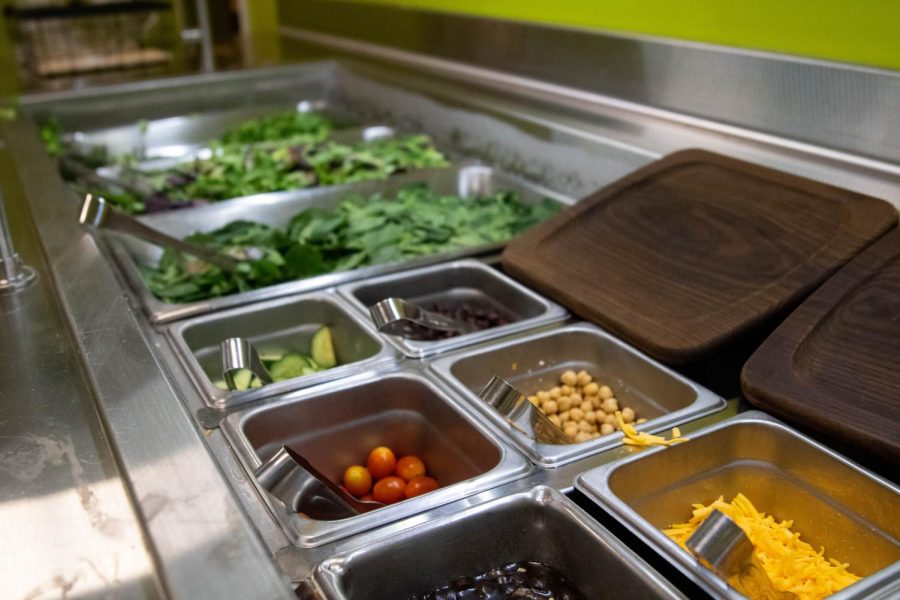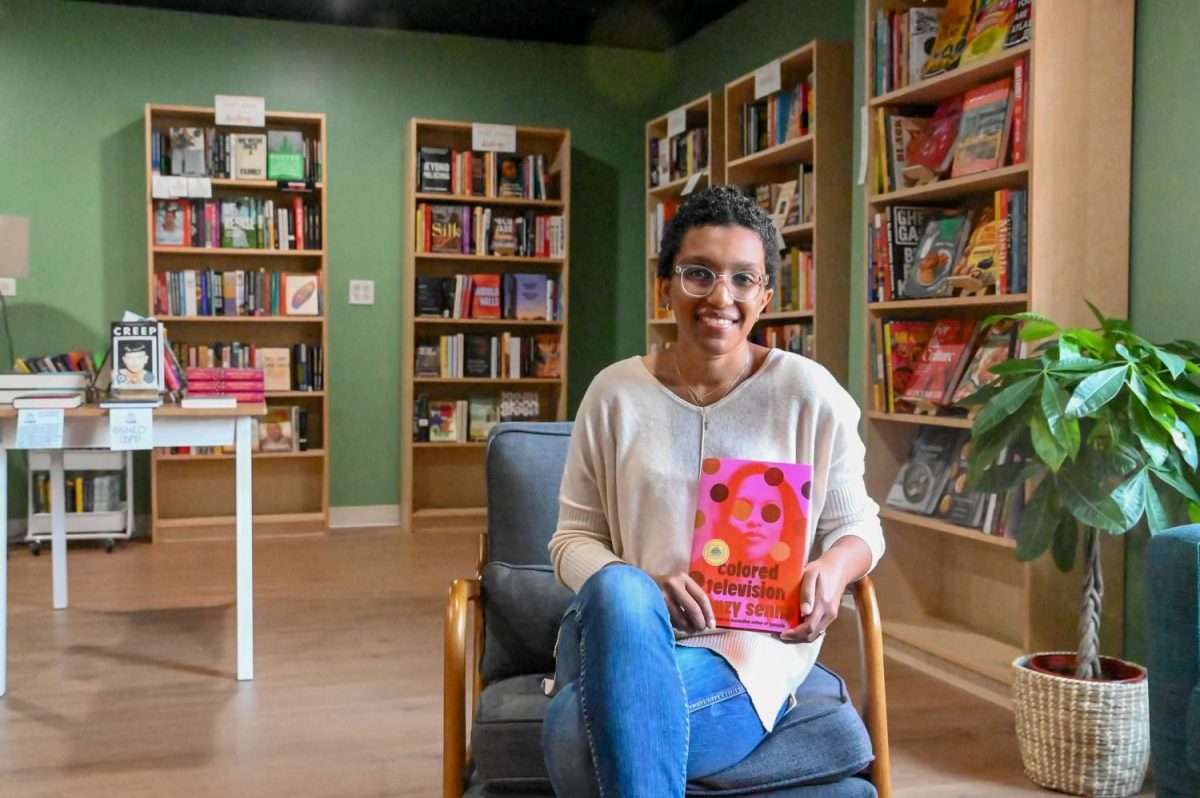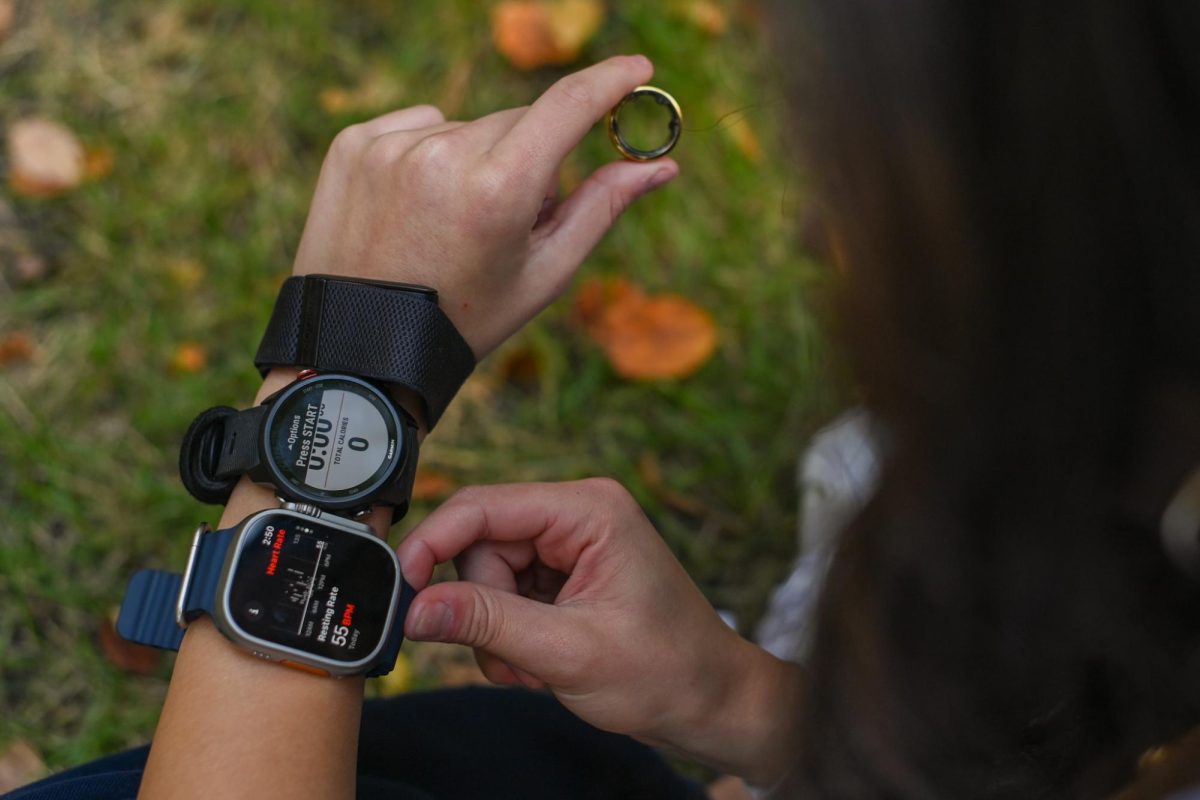Food Fight: Café Lab’s options clash with students’ health choices, expectations
While Café Lab offers a salad bar, students often gravitate toward the quicker, more convenient options at the grill.
October 19, 2022
It’s lunchtime at U-High. Pans crackle at the stir fry station. Chefs toss rice noodles, edamame and tofu as a long, slow-moving line of students waits. The salad bar is bleakly deserted. All the action is by the grill, where students grab baskets of french fries, chicken tenders and burgers before racing to the cash registers.
With growing concerns over the mental health of students nationwide, nutritionists say there is a link between what people eat, how they feel and how they perform at school. Still, many U-High students regularly choose fried or processed foods over options that experts say are healthier.
The reason for these dietary decisions, students and Café Lab staff suggested, is a complicated combination of long lines, the cafeteria’s layout and, in truth, what students prefer to eat.
Café Lab sells about 150 pounds of french fries each day, said executive chef, Jonathan Sherman. He said that the idea of removing fried foods would be highly unpopular.
“It would be like telling McDonald’s: ‘Take off the chicken nuggets,’” Mr. Sherman said. “You would have every toddler in an uproar.” He added of Café Lab: “This is where kids come. It’s a safe place. They like this place. You want to have a good lunch, you know?”
Nutritionists have long focused on links between medical problems and unhealthy foods. This fall the Biden administration for the first time in decades held a White House conference on Hunger, Nutrition and Health, pledging to reduce diet-related disease by 2030.
Schools are a key aspect of any strategy to improve nutritional health. Edwin McDonald, a nutrition education expert and assistant professor of medicine at UChicago Medicine, said the dietary choices teens make are crucial. These choices affect both the short- and long-term future of their health, he said.
Dr. McDonald also emphasized the importance of school cafeterias advertising healthy food, and making students aware of it.
“If teenagers don’t understand that this should be one of their priorities, then they may not necessarily consume those things,” he said.
Some U-High students said that the location of the salad bar — in an alcove off the main serving area — makes it hard to notice. Sophomore Kate Jablonski said she has a salad every day and enjoys the selection of options. She thinks that not many students use the area.
“I don’t really see anyone else,” said Kate. “There’s usually no line.”
Café Lab officials acknowledge that the location of the salad bar may be part of the problem.
“It’s out of sight, out of mind,” said Mr. Sherman. “You’re not going to go there if you don’t see it, especially if you’re busy.”
But the location issue of the salad bar is difficult to resolve, Mr. Sherman said, because the bar was built into the electrical system of Café Lab, so relocating it would require complex changes.
Café Lab staff note that there are fresh fruits and ready-made salads in the refrigerator section, but some students said they found those options less than appealing.
Zoe Alphonse, a ninth grader, said she wished for more options that are appetizing, convenient and nutritious. She said she usually has the stir fry for lunch, despite the wait.
Ultimately, student preference generally leans toward the greasy, efficient and comforting choices that come from the grill: fries, tenders, pizza and burgers. Café Lab officials say they try to consider this along with the nutritional value of meals.
“It’s a tricky balance to strike. We’re trying to offer the widest range of foods that we think students are going to enjoy,” said Brian Lipinski, Lab’s director of finance. “So this way, if someone is feeling like they want to get something healthy, they can do that, because we have options that fit. And if students want to just get something tasty that maybe isn’t as healthy, we have that as well.”
Mr. Sherman vividly remembers what can go wrong when his staff breaks with students’ expectations — like the time they replaced regular fries at the grill.
“We did cheese fries one day,” he said, “and it was pure chaos.”












